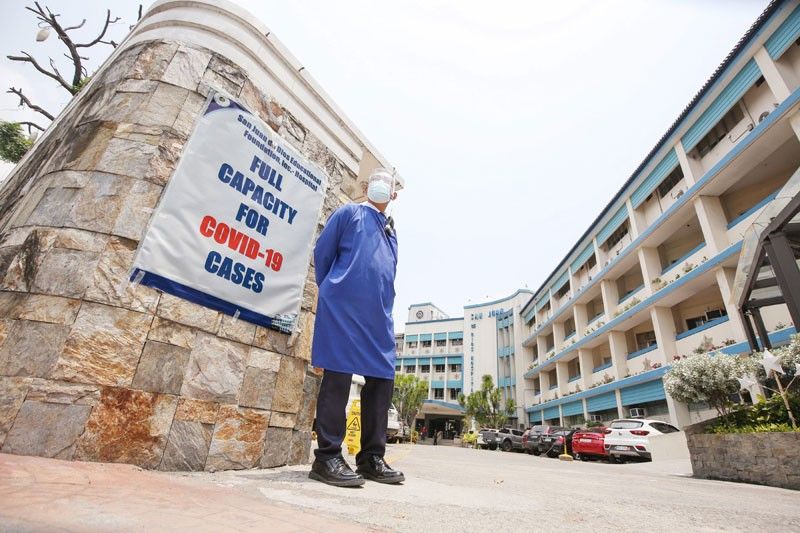PhilHealth's debit-credit payment method OK'd for settling unpaid hospital claims

MANILA, Philippines — State-run Philippine Health Insurance Corp. (PhilHealth) can now settle hospitals' claims through the debit-credit payment method in all high risk and critical areas as the government seeks to expand the country's healthcare capacity to accommodate more COVID-19 patients.
The Inter-Agency Task Force for the Management of Emerging Infectious Diseases (IATF) allowed the expansion of the application of the debit-credit payment method through Resolution No. 111 issued last April 22.
Under the resolution, the method used by PhilHealth to settle the accounts payable to healthcare facilities, shall apply in high and critical risk areas as determined by the two-week growth rate, average daily attack rate, and health care utilization rate. These areas will also be prioritized in the COVID-19 vaccine allocation, human health resource deployment, and other relevant pandemic responses.
Presidential spokesman Harry Roque said PhilHealth initially applied the debit-credit payment method only to areas identified by the government's pandemic task force namely Metro Manila, Batangas, Bulacan, Cavite, Laguna, Pampanga and Rizal.
Officials previously said President Rodrigo Duterte's directive for PhilHealth to pay hospitals with unpaid claims convinced medical institutions to allocate more beds for COVID-19 patients. The payments allowed hospitals to open more facilities for people who contacted the virus.
Presidential spokesman Harry Roque has said the commitment of hospitals to increase their COVID-19 facilities especially intensive care unit beds was crucial in Duterte's decision to downgrade the classification of Metro Manila Plus from the strictest enhanced community quarantine (ECQ) to the more lenient modified enhanced community quarantine last April 12. The NCR Plus, which is composed of Metro Manila and the nearby provinces of Bulacan, Cavite, Laguna and Rizal were placed under ECQ from March 29 to April 11 to address the soaring number of pandemic infections.
According to a PhilHealth circular released this month, the debit credit payment method involves the payment of 60% of the total applicable healthcare facility receivables subject to 2% expanded withholding tax for private eligible facilities. The payment of the remaining 40% of the total amount of good claims will be subject to 2% expanded withholding tax for eligible private facilities following full compliance with existing claims processing requirements and procedures and full reconciliation of the 60% of the total amount of receivables initially paid to the facilities.
The IATF has also directed the National Task Force - Task Group Treat to use the feasibility analysis of syndromic surveillance using spatio-temporal epidemiological modeler for early detection of diseases projections on target beds and human resources for health. Roque said the projections would identify health capacity needs required to lower health care and intensive care unit (ICU) utilization rates.
"The NTF (National Task Force Against COVID-19) shall also review and implement the recommended prevent-detect-isolate-treat-reintegrate strategies to reduce the health utilization rates and augment the needs of human resources for health," Roque, also the spokesman of IATF, said in a statement.
The Task Group Treat, the One COVID Referral System, the health department's health facility development bureau, and other agencies were also instructed to identify target additional beds on a weekly basis that would substantially reduce health care and ICU utilization rates. They are also expected to determine and list specific health facilities and infrastructure that would contribute additional beds, operationalize how these beds will become functional, and how enough human resources and equipment can be provided.
The NTF was also instructed to enhance the enforcement of COVID-19 strategies at the barangay level by engaging the Technical Education and Skills Development Authority for the development of training and instructional materials of available COVID-19 response frameworks like Operation Listo, Dharavi Model, and the local governments' Coordinated Operation to Defeat Epidemics. The materials should be disseminated to barangays, puroks, sitios, and zone levels through the interior department, the IATF said.
- Latest
- Trending






























